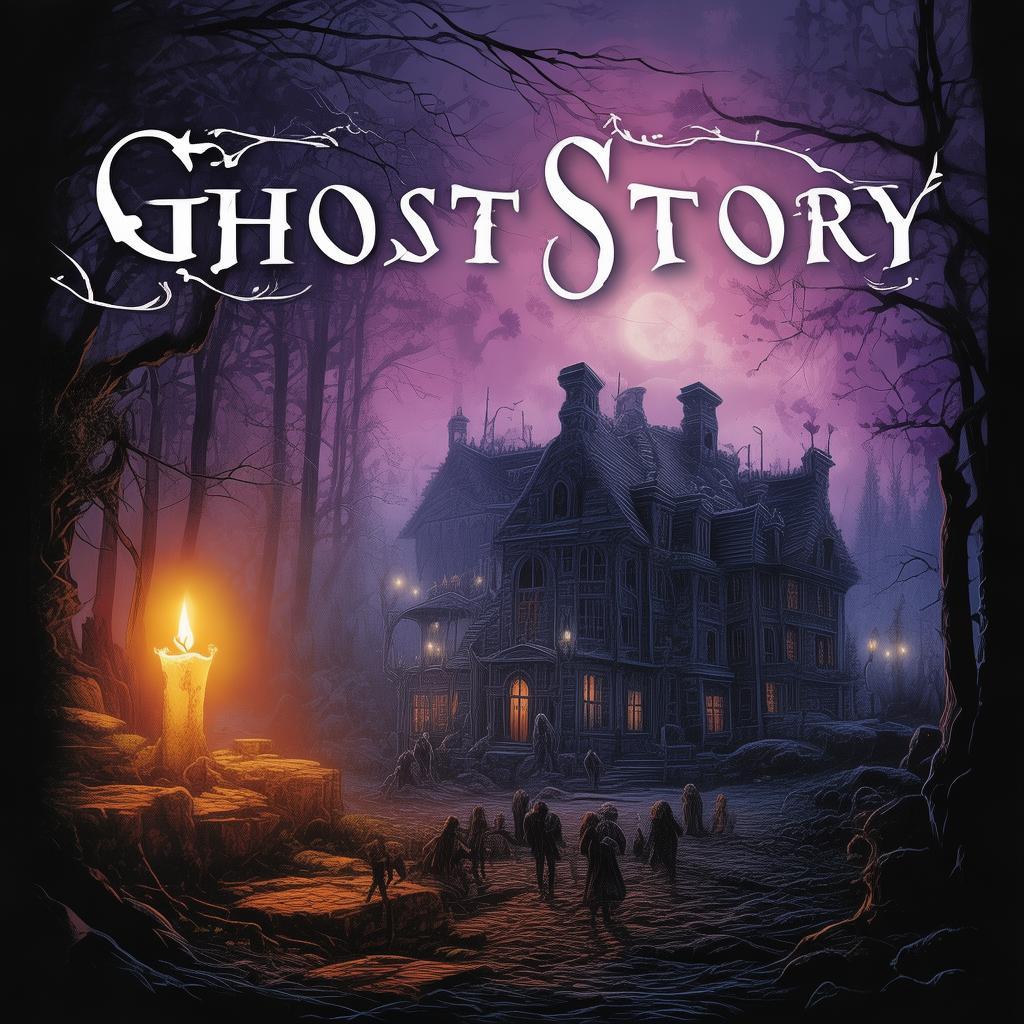The Sinister Symphony: Zhou De Dong's Short Ghost Opera
In the heart of the ancient town of Jingmen, where the misty air whispered tales of the past, there was a small, dilapidated theater that had seen better days. It was here, in the dimly lit shadows, that the legend of The Sinister Symphony began to unfold. The theater had been abandoned for years, its once vibrant stage now a canvas for the haunting whispers of the forgotten.
Zhou De Dong, a reclusive and enigmatic figure, had been rumored to have returned to Jingmen, his presence as elusive as the ghost stories that had long since haunted the town. He was said to be a master of the ancient art of ghost opera, a tradition that had almost been lost to time. His performances were rare, and those who had the fortune to witness them spoke of them in hushed tones, their voices tinged with awe and fear.
The night of the performance was a cold one, the wind howling through the broken windows of the theater, adding to the eerie atmosphere. The audience, a mix of the curious, the superstitious, and the desperate for a good story, gathered in the darkness, their eyes wide with anticipation.
The theater's stage was set with an old, ornate piano, its keys worn and dusty. Zhou De Dong appeared, a figure cloaked in shadows, his face barely visible in the dim light. He began to play, the music a haunting melody that seemed to pierce through the very fabric of time. The audience held their breath, their hearts racing as the notes grew more intense, more desperate.
The story he began to weave was one of love and loss, of a man who had given everything for the woman he loved, only to have his heart shattered by betrayal. The music grew louder, the emotion more palpable. The audience was drawn in, their senses overwhelmed by the intensity of the performance.
As Zhou De Dong's voice rose, his words filled the theater with a chilling beauty:
"In the twilight of my days,
I sang for you, my love so true.
But the stars above, they turned their backs,
And the moon, it wept, for your sake."
The audience was silent, the room thick with emotion. Then, as suddenly as it had begun, the music stopped. Zhou De Dong stood before them, his eyes filled with a sorrow that seemed to transcend the bounds of the human experience.
"In the end, we are all but shadows,
Caught in the dance of life's own symphony.
For love is the most beautiful of lies,
And the heart, the most fragile of all."
The audience erupted into applause, their hands clapping as if to hold onto the fleeting moment of beauty they had just witnessed. But as the applause died down, a chill ran through the room, and the audience noticed something strange. The piano, which had been silent during the speech, began to play again, the haunting melody once more filling the theater.
The audience turned to see Zhou De Dong, now standing behind the piano, his hands moving effortlessly over the keys. But there was no one there. The piano played on, the music growing louder, more intense, until it was a cacophony of sound that seemed to shake the very walls of the theater.

The audience, now in a state of shock, looked around, their eyes wide with fear. And then, from the darkness, a figure emerged. It was Zhou De Dong, but his face was twisted in pain, his eyes filled with a rage that was almost inhuman.
"No!" he screamed, his voice echoing through the theater. "You cannot take her from me! She is mine!"
The audience watched in horror as Zhou De Dong's form began to fade, his voice growing fainter, until he was nothing but a ghostly silhouette. The piano stopped playing, and the theater was once more filled with silence.
The audience, now trembling with fear, stumbled out of the theater, their minds racing with the events they had just witnessed. But as they emerged into the cold night, they noticed something odd. The theater was gone. In its place was an empty lot, the stage now nothing but a memory.
As the days passed, the story of The Sinister Symphony spread through the town. Some claimed it was a tale of love gone wrong, while others whispered that Zhou De Dong's ghost had returned to the theater, his spirit trapped forever by the betrayal of his love. Whispers of the performance still echoed through the town, a reminder that sometimes the most beautiful of lies are the hardest to escape.
The Sinister Symphony: Zhou De Dong's Short Ghost Opera was a haunting tale of love, betrayal, and the supernatural, a story that would be told for generations, a reminder that some symphonies are too dark to be played in the light of day.
✨ Original Statement ✨
All articles published on this website (including but not limited to text, images, videos, and other content) are original or authorized for reposting and are protected by relevant laws. Without the explicit written permission of this website, no individual or organization may copy, modify, repost, or use the content for commercial purposes.
If you need to quote or cooperate, please contact this site for authorization. We reserve the right to pursue legal responsibility for any unauthorized use.
Hereby declared.









